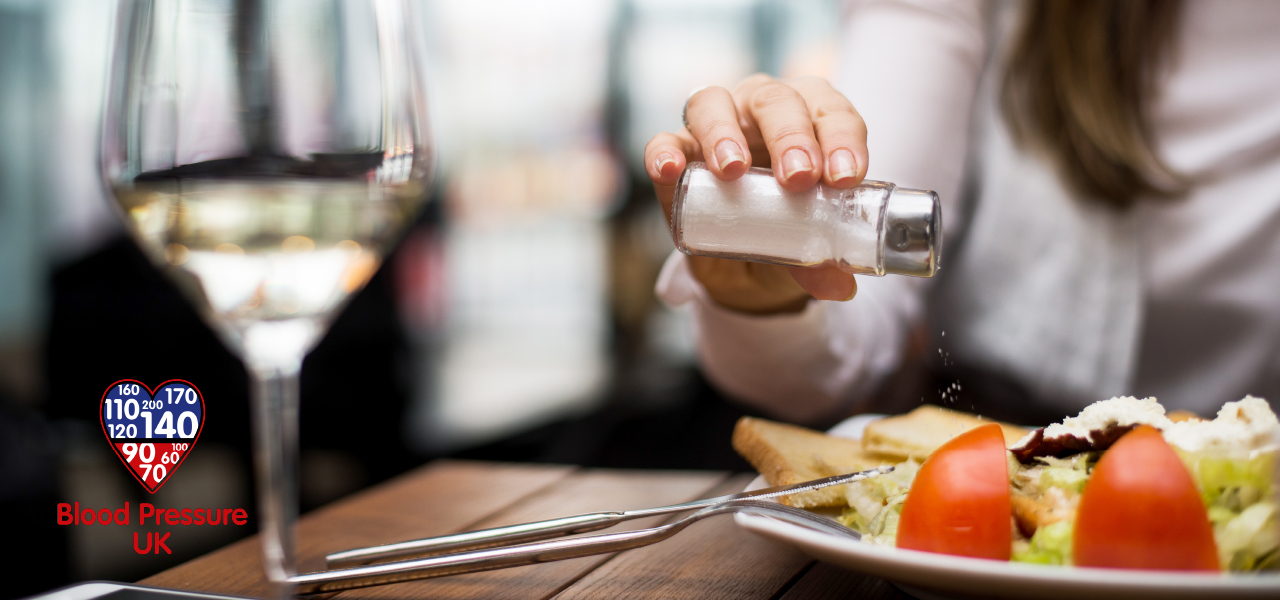13 December 2022

Adding salt at the table could shorten your life
A new study of half a million people in Britain has shown that always adding salt at the table was linked to a shorter life expectancy. We asked our partners Blood Pressure UK to explain more…
As a nation, we’re so addicted to salt that one in six Brits admit to adding it to takeaways, with 21% also simply using it ‘out of habit’. The new research reveals the detrimental effect of using salt so liberally has on our health – with research showing seasoning with salt increased the risk of premature mortality and took 2.3 years off the participants’ life span for men, and 1.5 years for women by the age of 50.
- Researchers from Tulane University used data from 500,000 people in mid-life, taking part in the UK BioBank Study
- Participants completed a questionnaire including questions on whether they add salt to their food and how often, and were followed for nine years
- The study was published in the European Heart Journal
- Does not include seasoning during the cooking process
Data showed that people who always seasoned their food had a 28% increased risk of dying prematurely (before the age of 75), compared to those who never or rarely did.
Most salt is hidden in processed foods, which makes it hard to track just how much people are eating.
The measurement for this research, was to use a number of urine samples collected over time and study these to find the relationship between frequency of salt added (as recorded in questionnaires) and spot urinary sodium analysis. As adding salt is a good indicator of a person’s preference for salty foods, and accounts for 6-20% of total salt intake, the team chose to use this measurement to explore how salt intake affects life expectancy.
The study could not completely rule out other factors, such as adding salt being a marker for a less healthy lifestyle overall; however, other factors that could affect life expectancy were accounted for, such as age, sex, ethnicity, deprivation, smoke, alcohol and more.
Researchers commented that to their knowledge, this study is the first to assess the relation between adding salt to foods and premature death – showing that even a modest reduction in sodium intake, by adding less or no salt to food at the table, is likely to result in substantial health benefits, especially when it is achieved by the general population.
The results also suggested that fruit and veg could go some way to countering the effects of salt, but the effects were not significant in scientific terms; however, these findings were not surprising, as fruits and vegetables are major sources of potassium, which has protective effects and is associated with a lower risk of premature death.
Professor Graham Macgregor, Chairman of Blood Pressure UK, explains: “Salt directly raises blood pressure which is a leading cause of heart attacks, strokes and other catastrophic diseases. By far the most efficient way to reduce blood pressure is to eat less salt. At an individual level, taking the saltshaker off the table is an excellent place to start.”
Salt is our biggest source of sodium
When there is extra sodium in your bloodstream, it pulls water into your blood vessels, increasing the total amount (volume) of blood inside them. With more blood flowing through your blood vessels, blood pressure increases. And while some sodium is essential for the body to function, the problem is, as a nation we eat way too much – a lot of salt is hidden in the food we buy! Therefore, reducing your salt intake, reduces the risk of hypertension (aka high blood pressure).
Prevention is always better than cure
Making small changes now, can all add up and ensure a healthier life, both for now and in the future. Some simple changes include…
- Read food labels and opt for lower salt options
- Stop adding salt to your cooking and replace it with other flavours such as lemon, chilli, dried herbs etc. Your taste buds should adjust in a few weeks!
- Alternatively, try adding a little bit less salt – your taste buds can’t notice a 10% reduction in salt, so you can cut back a little to start with and gradually cut back more and more.
But if you really can’t shake the habit, then using a reduced-sodium salt and learning to ‘season with sense’, can have a big impact on your health.
For further information from Blood Pressure UK, visit www.bloodpressureuk.org.
